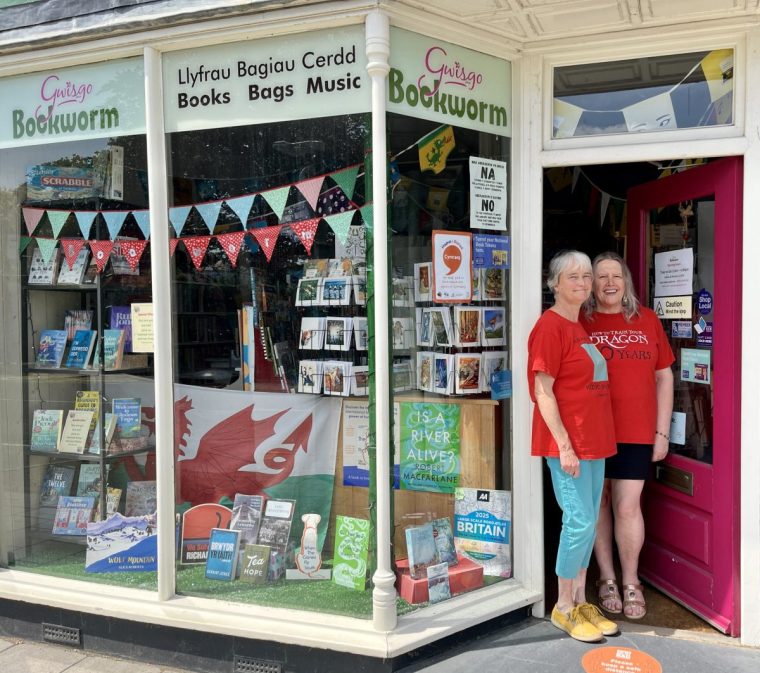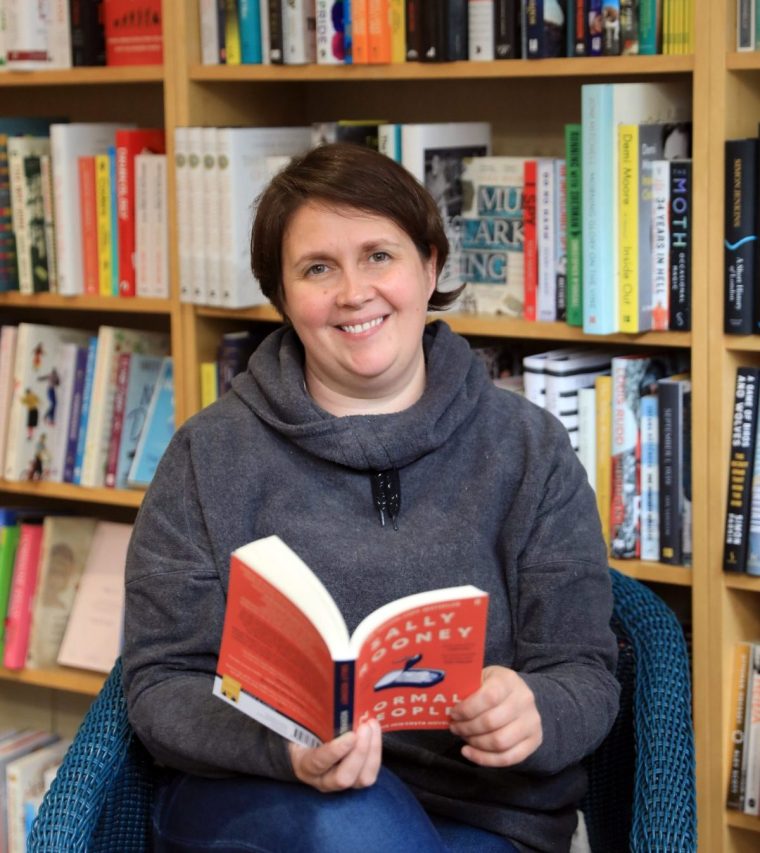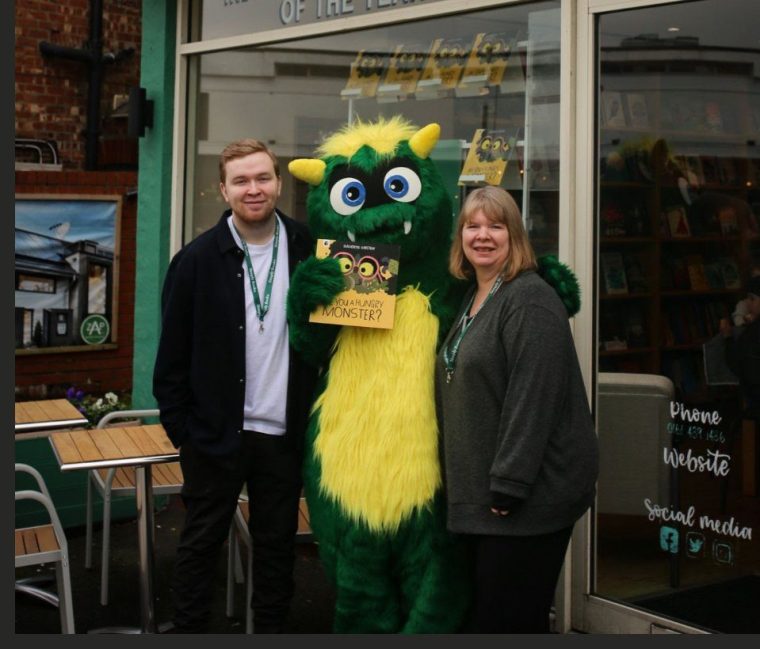At the end of his very first day running Simply Books in Stockport, Ben Johns felt something unfamiliar wash over him. He had spent eight hours on the shop floor, talking to strangers about reading. It was a complete contrast from his previous job in tech, most of which he had done remotely, in isolation. Now, not only was he surrounded by books, he was immersed in conversation about them.
Read Next: The best new books out in paperbacks in June 2025
“I got to the end of the day and thought, ‘This is an odd feeling – what is it?’ Then I realised it was happiness.”
For the many bibliophiles who dream of ditching their day jobs to open a bookshop , it is easy to see the appeal. Surrounded by stories, fuelled by conversation, and embedded in their local communities, bookshops offer something hard to find in a spreadsheet or Slack thread.
And the dream seems to be catching: according to the Booksellers Association , there are now more than 1,000 independent bookshops in the UK, the highest number in a decade.
Like Johns, many of these new booksellers have found their way to the trade after leaving behind unfulfilling careers and impersonal office jobs. Across the country, there are hundreds of stories of people quitting corporate careers or undervalued public service roles in search of the book-lover’s dream.
‘Dairy farming breaks your body – we decided to stop milking by age 50’
Perhaps earning the crown for the most dramatic lifestyle overhaul are Karen and Niki Brewer, who in 2017 swapped their life as rural dairy farmers for running Gwisgo Bookworm in the Welsh seaside town of Aberaeron.
“Our lives could not be more different now,” says Niki. “On the farm, we were very isolated, with no real neighbours, and it was unbelievably hard work. Livestock farming is so physical – it can really break your body – so at some point we decided that we would stop milking by the age of 50.”
As that milestone approached, it dawned on them they had no idea what they might actually do next. Having met in agricultural college in the early 80s, farming was all they knew.

Then, by chance, they saw that the second-hand bookshop in the nearby town was for sale, and having a home filled with more books than shelves, something just clicked. They sold the farm and moved into a terraced house a four-minute walk from the shop, and gradually transformed the business, adding new releases, events and a vinyl section.
Now in their sixties, they both feel happier and healthier for it. A box of books isn’t as heavy as a bag of fertiliser, they say, and they open at the leisurely time of 11am (which is plenty early enough for them).
Read Next: The best new crime and thriller books to read in June 2025
“It’s still work,” Karen says, “but it’s not 4am in the rain with an escaped cow. No one phones in the middle of the night to say your books are out roaming free on the road, which is nice.”
Having said that, farming prepared them for bookselling in unexpected ways. For one, it gave them plenty of resilience and problem-solving skills (helping them to cope through the challenges of the pandemic). Then there is the fact that book ISBNs aren’t too dissimilar to cows’ ear tags.
The caring aspect also feels similar, albeit now directed at customers rather than livestock. “We knew our cows by name,” Niki says. “We talked to them while we were milking. We could recognise them from across a field. That attention and care is in our nature, and it has carried over to the shop.”
Karen adds: “Also, like farming, no two days are the same. Sometimes you will be run off your feet all day, and other days you will only see two or three people. Anyone who wants to go into bookselling should be warned: don’t do it for money.”
‘I worked 80-hour weeks in a bank – I thought, what the hell am I doing?
Sarah Dennis, who left investment banking in London to run Mostly Books in Abingdon , Oxfordshire, knows all about the financial trade-offs involved.
“I worked out that in my first year of bookselling, I made 25 per cent of my previous salary,” she says. “I won’t pretend that having more money doesn’t make life easier. It does. The cost of things and the margins of running a bookshop, are a big squeeze. But would I go back to my old job for the money? Absolutely, categorically never.”
Prior to the shop, she seemed to have it all: a prestigious career, an amazing apartment, the freedom to travel. “Externally, it looked great. But I was working 70- to 80-hour weeks. It was highly stressful, and I never enjoyed it – I was just dealing with it.”
It wasn’t until her father passed away that she re-evaluated her life entirely. “He hadn’t long been retired and had all these plans he never got to do. It really shook me up. I thought: what the hell am I doing with my own life?”

She quit her job, travelled for a year and gradually realised she wanted to do something involving books , reading and community. “I’d always been a prolific reader and knew how books can help people, so I just kept coming back to this idea of doing something that actually adds value to the world.”
When she returned from travelling, she took a short-term contract in finance to save money, then bought Mostly Books. Eight years on, she hasn’t looked back.
“The thing about bookselling is that we’re more than just a shop,” she says. “Yes, people might come in and buy something, but it’s about more than that. People really feel very comfortable coming into a bookshop and talking about things I never would have expected.”
They might open up about heartbreak and ask for a recommendation to get them through, or tell her they’re buying a book because it reminds them of their late husband. “I remember very early on, a man who came in told me he was buying a particular book because his mother had died, and it happened to be the anniversary of me losing my dad, and we ended up having the most in-depth, beautiful conversation about grief,” she says.
“You just never know who you might connect with in a bookshop: someone just walks through the door and you have a conversation which changes the entire direction of your day, week or year.”
‘I loved the bookshop I went to as a child – so I bought it’
It is an experience Johns very much agrees with. In a joint venture with his mother Karen, a former teacher who always dreamed of having a bookshop, he took on Simply Books last year after its previous owners retired.
“Mum and I had always loved it there – I went to my first author event in the shop aged seven,” he says. “So when we saw it was for sale, we looked at each other and said, ‘That would be a terrible idea.’ Three months later, it was ours.”
They threw themselves into building a vibrant, social space – adopting the ethos that reading is not as solitary as people think. “We put a big focus on talks, events and book clubs – we have 29 now, which is as operationally difficult as it sounds.”

They have hosted authors from Ruth Jones to David Nicholls , and say that watching strangers in the signing queue bond over books and stories is still the best sight. “Especially now, I think younger people are craving in-person connection,” he says.
At Gwisgo, the Brewers see the flipside of that. “A lot of our regular customers are older,” says Niki. “They come in just to talk. Or because it’s warm. We’ve also learnt to spot signs of dementia, and sometimes find ourselves stopping people from buying books they have already bought.”
Read Next: The five best books about motherhood according to Alice Vincent
Being in the heart of the community has other benefits, too. “Sometimes we will have to gently dissuade someone from getting a book because we know that a relative of theirs has already bought it for them for Christmas. That’s just part of the job.”
That personal touch is what makes independent bookshops so special, because it is something chain stores and online giants can’t replicate. “There are so many places you can go and buy a book cheaper: you go on Amazon , you can go to the supermarkets, and get books half the price,” says Johns. “But what you don’t get is that personal, social connection.
“Mum and I say all the time that we’re not very good booksellers, because we don’t care if someone comes in and doesn’t buy a book, or if they just come in for coffee in a chat, or even if someone just sits and reads a book they already have. Because what we’re providing as much as books is community. And I think the community element is the most important thing for an independent bookshop – for me, it is the biggest joy of it all.”
Independent Bookshop Week (today to 21 June) is a flagship campaign from the Booksellers Association , celebrating, supporting and advocating for independent bookshops and the unique value they bring to the retail sector and wider society